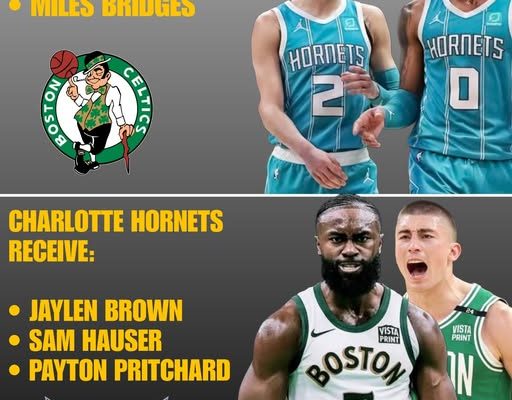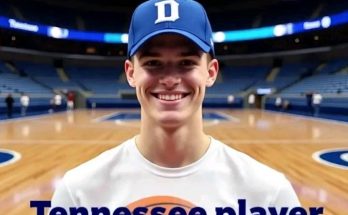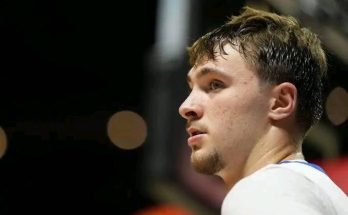The Boston Celtics have reached a point where difficult decisions are inevitable. Fresh off a championship, the core of Jayson Tatum and Jaylen Brown has delivered banner No. 18 to the rafters of TD Garden. But with Tatum recovering from a devastating Achilles injury and Brown on a supermax contract worth over $300 million, the organization is staring down a brutal luxury tax future. Add to that the rising price tags for their supporting cast, and it becomes clear that Boston’s front office is at a strategic crossroads.
Meanwhile, in Charlotte, the Hornets have spent years floundering in irrelevance. Despite some promising young talent and flashes of offensive flair, they’ve struggled to form a cohesive identity or take meaningful steps forward. The LaMelo Ball era has been electric at times, but also plagued by injuries, inconsistency, and defensive limitations. The team wants a star who can not only produce but lead, defend, and elevate the franchise into a winning culture. And that’s where this mock trade begins.
In a bold, franchise-altering move, the Celtics and Hornets strike a deal that sends Jaylen Brown to Charlotte in exchange for a package centered around LaMelo Ball. On paper, it’s a blockbuster swap of former No. 3 overall picks — Brown from the 2016 draft and Ball from 2020 — but the context behind the deal runs much deeper than draft positions.
Here’s the trade scenario:
Charlotte Hornets receive:
- Jaylen Brown (SF/SG)
- Payton Pritchard (PG)
- Sam Hauser (SF)
Boston Celtics receive:
- LaMelo Ball (PG)
- Miles Bridges (SF/PF)
- 2027 first-round pick (unprotected)
- 2029 pick swap option
The logic behind Charlotte’s decision is clear. Jaylen Brown offers something this franchise has lacked for years: proven excellence, playoff experience, and a defensive-minded leader. At 28 years old, Brown is entering his prime with accolades that include multiple All-Star appearances, an All-NBA nod, and a recent Finals MVP award. His ability to score at all three levels, defend elite wings, and carry himself with professionalism fits exactly what the Hornets are missing.
With Brown as their centerpiece, the Hornets can finally start building a team with a clear identity. Brown brings toughness, focus, and accountability. Pairing him with the likes of Brandon Miller and Mark Williams gives Charlotte a legitimate core to build around. Pritchard provides them with a solid backup or starting-level point guard who brings shooting and effort. Sam Hauser fills the need for floor spacing at the forward position, shooting well above league average from deep and playing within his role.
In one move, Charlotte gets a franchise cornerstone, backcourt depth, and shooting — but more importantly, they get someone who has actually won. Brown isn’t just a name; he’s a culture-changer, someone who has led a team to the mountaintop and knows what it takes. He instantly becomes the best player to suit up for the Hornets in a generation, with the potential to raise expectations across the board.
Of course, this is a massive risk for Charlotte. Brown is on a supermax contract, and while he’s a consistent 22-25 points per game scorer, he’s not the playmaker or shot creator LaMelo is. If Brown can’t stay healthy or deliver deep playoff runs, the move could backfire. But the Hornets, stuck in mediocrity for years, are finally betting big. It’s a gamble — but one with a potentially transformative payoff.
On the flip side, Boston’s motivation is more complex. Trading Jaylen Brown just months after winning a title would be highly controversial. Fans would likely revolt, and ownership would have to sell it as a forward-thinking move, not a salary dump or panic decision. But from a cap and roster-building perspective, there’s logic here.
With Jayson Tatum recovering from a long-term injury, the Celtics are in danger of wasting a season of contention. Their supporting cast — Jrue Holiday, Derrick White, Kristaps Porziņģis — isn’t getting any younger. Rather than sitting tight and hoping for the best, this deal gives Boston a chance to reset while staying competitive.
LaMelo Ball, for all his flaws, brings undeniable upside. Still only 23 years old, he’s a gifted passer, elite ball-handler, and offensive engine who could revitalize the Celtics’ offense with a completely different style. While Brown is a straight-line scorer, Ball is a maestro in transition and pick-and-roll, capable of making passes few others can.
Ball’s contract is also far more manageable. With team control and a lower salary than Brown, Boston gains much-needed financial flexibility. That could become critical as the NBA’s new collective bargaining agreement punishes luxury tax repeaters harshly. The addition of a first-round pick and a swap sweetens the deal, giving Boston optionality if they want to make another move down the road.
Miles Bridges, meanwhile, is a high-risk, high-reward piece. His off-court history is checkered, and any team acquiring him will face scrutiny. But on the court, he remains a versatile scorer and athletic wing who can play either forward spot. If Boston can integrate him into their culture and hold him accountable, he could be a valuable rotation piece or even a trade chip later on.
The main question for the Celtics is simple: does trading Jaylen Brown make them better long-term?
In the short term, the answer might be no. Brown has improved every year and become a foundational player. But without Tatum, Boston’s title hopes next season are shaky regardless. By retooling around Ball and adding assets, the Celtics might be able to stay competitive while keeping their window open for years to come.
This move also allows Boston to pivot toward a more dynamic, pace-and-space style of play. Ball’s presence could unlock a more free-flowing offense, and pairing him with shooters like Derrick White, Hauser (if retained in another scenario), and Porziņģis could be electric. Once Tatum returns, a Ball-Tatum core could rival the league’s best duos — especially with more cap flexibility to build a new supporting cast.
Of course, there are risks. Ball has never played meaningful playoff basketball. His defense is a liability, and his health has been a concern. But that’s the nature of upside swings — you don’t get the opportunity to reset your cap sheet, stay young, and add elite talent without sacrificing something.
In this case, that “something” is Jaylen Brown — a player beloved in Boston, respected around the league, and coming off the best stretch of his career.
The backlash would be swift. Fans would see it as abandoning a championship core, and in some ways, they’d be right. But long-term, the deal could serve both teams well. Charlotte gets a legitimate star, someone who can finally lead them to the playoffs and beyond. Boston gets a younger, cheaper cornerstone and the ability to reconfigure its future while staying competitive.
Ultimately, this mock trade isn’t about which team “wins” — it’s about fit, timing, and risk tolerance.
The Celtics would be betting on their culture and development system to help LaMelo Ball mature into a winning player. They’d be taking on a risky project with potentially massive upside. They’d also gain valuable draft capital in an era where flexibility is more valuable than ever.
The Hornets, meanwhile, would be swinging for the fences. After years of lottery disappointment and mid-tier basketball, they’d be going all in on a star with championship credentials. Brown might not be a top-10 player, but he brings everything Charlotte lacks: consistency, toughness, and a proven track record.
In this fictional world, both teams walk away feeling like they’ve taken a necessary step forward — even if the public sees it differently.
For Boston, it’s a matter of long-term sustainability. For Charlotte, it’s finally about winning.



